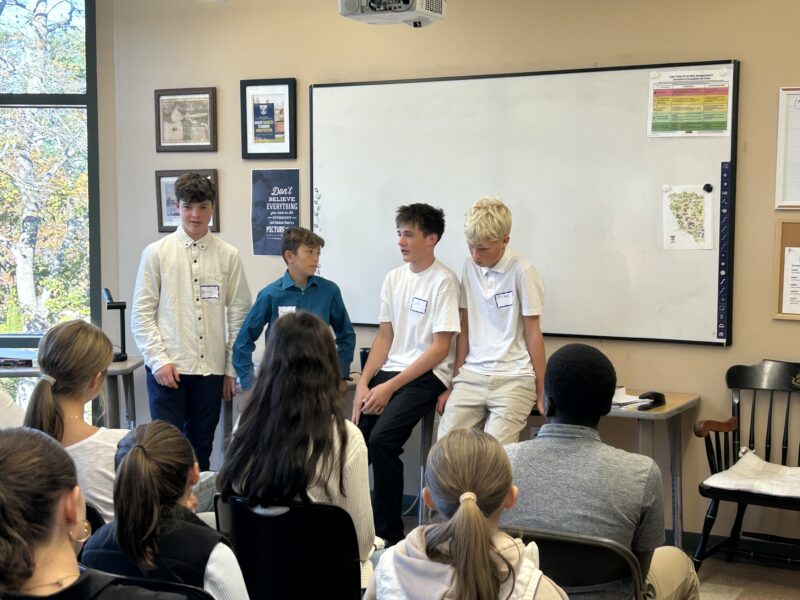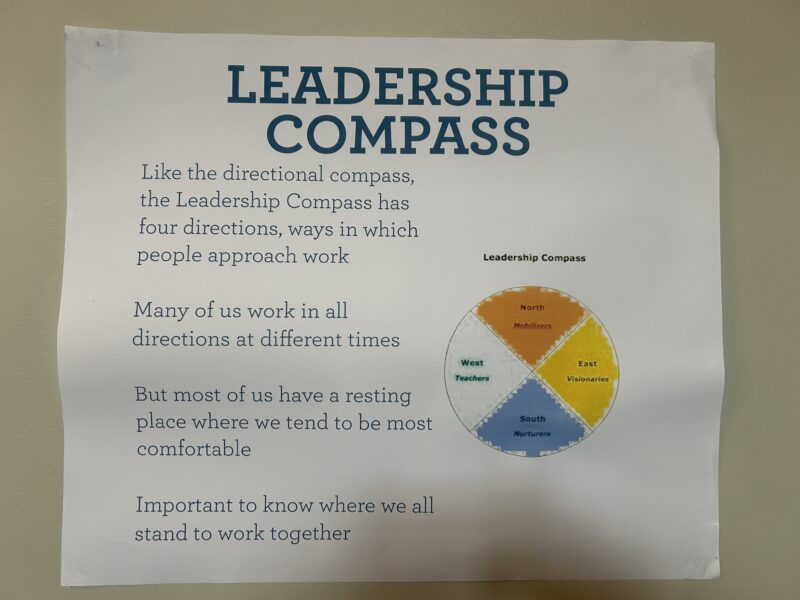I have been in the character education business for over 40 years. Somewhere in my brain lies a list of effective concepts and methods. It probably sits next to a much longer list of things that do not work. It is a trial-and-error game.
At least once a week I remind myself that my colleagues and I are trafficking in human behavior, an unpredictable enterprise, at best.
On the one hand, I like to say that I have immunity from astonishment. On the other, I always tell the faculty, “Whenever I say that I have seen it all, I invariably find that I am mistaken.”
There are three players in character education: 1) students, 2) teachers, and 3) parents. In my experience, each of these players faces two unique (to each group) obstacles to significant progress. I will attempt to describe them here.
Students – 1) “Life is Hard” & 2) Brother’s/Sister’s Keeper (B/SK)
First, students tend to be afflicted by an inability or unwillingness to accept the simple fact that life is hard. Students with this affliction typically have issues with delayed gratification.
The opening of Scott Peck’s (1936-2005) book, The Road Less Travelled, captures it:
Life is difficult. This is a great truth, one of the greatest truths. It is a great truth because once we truly see this truth, we transcend it. Once we truly know that life is difficult – once we truly understand and accept it – then life is no longer difficult. Because once it is accepted, the fact that life is difficult no longer matters.
If Peck is too heavy for you, consider what Justice Louis Brandeis (1856-1941) once said to a whining granddaughter: “Your problem, my dear, is that you do not accept that life is difficult. If you would simply accept that it is difficult, it would be so much easier for you.” As Brandeis intimated, the tendency to hold onto the hope that life could be easy only makes it harder. This difficulty invariably creates a delayed gratification bottleneck on the road to character development.
The second problem, inextricably related to the first, has to do with what we at Hyde call Brother’s/Sister’s Keeper (B/SK). New students at Hyde typically regard it as a negative “snitch system” as opposed to the most powerful ingredient in a healthy school culture. Bottom line: If you do not have a strong B/SK ethic, your esprit de corps will not become the vibrant inspiring communal synergistic force necessary for inspiring character development.
The primary purpose of B/SK is to create a community of people who care for each other, who make it safe, and indeed an expectation for all members to take risks and commit to their personal best. In a B/SK community, working hard and taking risks is cool. While most kids start out with a distaste for B/SK, they tend to become ardent advocates once they benefit from it. That happens once they accomplish something that they did not think they could accomplish and they also make the connection between that accomplishment and the fact that somebody pushed them to take this new step.
Parents – 1) Letting Go & 2) Looking at Self
The recent College Admissions Scandal is reflective of the current parental impulse to prepare the proverbial road for the kid as opposed to preparing the kid for the road. Today’s parents are engaged (and for far too many, “engaged” is a polite way of saying it) in their children’s affairs and challenges to an extent I could never have imagined when I took my first teaching post in 1976. As a result, the familial demarcation line delineating who-is-responsible-for-what has never been as blurry or varied as it is today. It is the biggest change I have seen during my career and it shows no signs of abating.
The second obstacle springs from the intense pressure we parents feel “to have it all together.” In today’s achievement and success culture, parents feel compelled to present themselves as beacons of strength, unfazed by life’s challenges. The main problem with this is simple: It is a lie, one that shows the world as a mirage to our children.
As a parent in a school committed to family-based character education, my experience helped me realize that my façade of impenetrable “confidence” had actually caused my daughters to erroneously conclude, “Dad seems to have it together in every situation. Since I do not have it together in every situation, there must be something wrong with me. I will best keep that to myself.” In other words, my children were doing the same thing that I was doing! Once I became honest about my own fears and my worries, my daughters could then feel normal about their everyday fears. We then challenged and supported each other in honest and open fashion.
Faculty – 1) Attitude-Busting Fatigue & 2) “I Am My Job.”
A scene from the film Hoosiers illustrates faculty stumbling block #1 so well that I have taken to using it in faculty training sessions. Gene Hackman is addressing his players at the season’s very first basketball practice. Out of the corner of his eye, he observes two players whispering and joshing with each other. (Anyone who has ever taught has faced this dynamic!) Hackman breaks from his remarks, challenges the two kids, and ends up kicking both out of the gym. While it might not be necessary to be this extreme, the character educator must steer into the storm. See an attitude… go after it!
Understandably, mixing it up with the kids can become tiring. Hey, busting attitudes takes a lot of energy! It can be tempting to put the blinders on as you walk down the hall. There is also the risk (“likelihood” is more like it) that the students will not like you, at least temporarily. Technique is a lot less important than a simple commitment to do it. Sometimes you simply have to jump into the fray and throw caution to the wind.
The second place where the faculty can struggle is what Peter Senge calls the “I am my job syndrome.” Rather than see themselves as part of a school’s grand idea, many teachers and coaches will identify themselves solely on the function they perform. (e.g., “I’m a math teacher.”… “I’m a football coach.”) This sets up cliques and water-cooler discussions as people protect their turf. When Hyde’s teachers fail to see that they are part of a larger purpose and instead burrow into a specific role they can damage esprit de corps. I like to remind myself, “I am teaching students, not subjects.”
Onward, Malcolm Gauld


